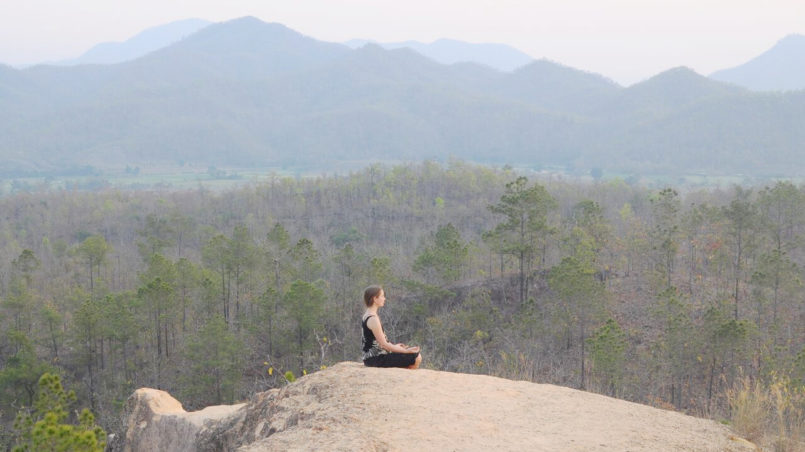Control Your Mind

Two years ago, when I came to India for the first time, I came across the following sentence again and again in the first few months: “You have to learn to control your mind.” At every turn, this sentence accompanied me, just like a mantra. And this definitely happened for a reason.
Before I started my journey I was full of fear. In the weeks prior to my departure, I was a huge nervous wreck. Often I thought about how everything could go wrong. My thoughts revolved around themselves all the time. But the worst thing/part about this “mind-carrousel” was that most of the voices in my head were not my own. I, unconsciously, took them on from my partly critical and worried environment. The consequence were negative thoughts in an endless loop. How good it was that I still sat down in that plane and, therefore, laid the first step of my long-term journey.
In the following weeks and months, it became increasingly evident how important those words were in my life, even if I refused to believe so in the past. Certainly, it was still hard for me to positively control my mind in the Indian traffic, let alone to have an accurate idea of how to implement the sustainable mind control. Moreover, I was lacking a personal reference point and a good technique regarding this.
Later on, I found this reference point in the Indian yoga philosophy and in meditation. And, of course, in all the uncertainties and not predictable situations, in which I was unprepared and which often requested an immediate decision.
Through the confrontation with the Buddhist teaching and the immersion into meditation, embedded in peace and without any kind of communication with others, a lot happened with me. I had personal realizations and made links in my life. I realized why it was so important for me to learn to observe the own mind.
The intense occupation with the buddhist teaching and meditation during those ten days showed me how destructive my own thoughts often are and that I am able to learn to not let them dictate my life, by not always following them naturally.
This process is definitely not easy. When you leave a meditation course with the best conditions for a personal contemplation, you are, at first, full of optimism, to wanting to change your life. But, as I soon realized, that does not work out as quickly. If, on the first day, you make an old “mistake” with thinking, judging and reject too much and have negative feelings, you should not condemn yourself for it … as now a very important, new component has been added:
Meditation is, needless to say, the best method, to increasingly understand and use this better. And it is the best to start exactly there, where you are at the moment, and with that, what you can establish in your life currently. Five minutes a day are better for a beginner than nothing and, with time, this time period will increasingly become longer, if you perceive the power of this easy technique for yourself.
Meditating is not easy, because you place high expectations upon yourself. But it is not about not thinking of anything, but to be aware of the fact THAT you are thinking. The first step is to realize that thought-processes mostly start on their own, and then to learn and say “Stop!” and to take a break, before the head jumps to the next train of thought.
And then it is time to take a deep breath and make myself aware of this: I am not my thoughts and some things are not in my hands and I cannot plan them ahead in my head. And it helps immensely to know that I can confidently let those doubting, negative voices in my head pass.
Translation German-English: Anna Stockenhuber
Credits
| Image | Title | Author | License |
|---|---|---|---|
 |
Meditating on a mountain in Thailand | Lisa Dau | CC BY-SA 4.0 |
